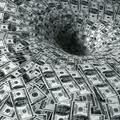Economics for the Normal Reader
Zumba and Economics – the Final Workout
This is the last article in the series for all of us normal readers. It has been such a fun time looking up the information for these articles, and I hope they have been of value to you, too. This article will cover more terms than prior articles, but this is just like the last leg in a marathon, and so we’ll give it a little kick, and hit the finish line strong.
Any economy goes though its own version of exercises, just like humans do. Economies flex and relax their muscles, and get injured and heal, just like a human body. Don’t sound too surprised. Economies are made up of the actions of hundreds of thousands of people, after all. Global economics work a lot like muscle groups. One economy might contract, while another expands. One may grow, while another declines. With this in mind, let’s explore the final set of terms in this series.
injured and heal, just like a human body. Don’t sound too surprised. Economies are made up of the actions of hundreds of thousands of people, after all. Global economics work a lot like muscle groups. One economy might contract, while another expands. One may grow, while another declines. With this in mind, let’s explore the final set of terms in this series.
Contraction
 This occurs on business cycle slowdowns, where production slows, and other events, such as bankruptcies and unemployment rise. Inflation tends to fall during a contraction, since people are buying fewer produced goods and services
This occurs on business cycle slowdowns, where production slows, and other events, such as bankruptcies and unemployment rise. Inflation tends to fall during a contraction, since people are buying fewer produced goods and services
(wikipedia.com)
Deflation
Deflation occurs when prices and assets continue to fall. The cause of this is widespread drops in demand for goods and services. This is a long term drop. Deflation signals a recession already underway, due to unemployment increasing, wages decreasing, and declines in value for such things as homes and investments. It is the result of businesses dropping prices to get more people to buy their products.
increasing, wages decreasing, and declines in value for such things as homes and investments. It is the result of businesses dropping prices to get more people to buy their products.
(About.com)
Depression
A Depression, in the economic sense occurs when a long term recession precipitated a continued loss of jobs, low production, low sales, , and a high rate of business failures and unemployment. (Dictionary.com)
Expansion
 Economic expansion can be thought of in terms of a hot air balloon, and it it like on e, at time. In fact, we have all heard about bubbles bursting. This is a reference to economic expansion. During an economic expansion, business is booming, and these surges in gross Domestic Product continue until things reach a peak. (Then, under normal economic times, business contracts until the next surge. So, the economy works more like your lungs.
Economic expansion can be thought of in terms of a hot air balloon, and it it like on e, at time. In fact, we have all heard about bubbles bursting. This is a reference to economic expansion. During an economic expansion, business is booming, and these surges in gross Domestic Product continue until things reach a peak. (Then, under normal economic times, business contracts until the next surge. So, the economy works more like your lungs.
So, if we take out the standard expression of a balloon, and trade it for a more organic
model, the economy can be seen to breathe, like a set of lungs. You can imitate this by drawing as much air into your lungs as possible. That is expansion at its peak.
Inflation
When the amount of currency in circulation increases, the value of the total amount of that currency falls, and prices increase. Inflation can also be the result of a decline in the supply of goods decreases, resulting in a sharp increase in prices. One example of this is gasoline prices. In 1970s, during the oil embargoes, gasoline prices tripled in some areas of the country, and they have never fallen.
that currency falls, and prices increase. Inflation can also be the result of a decline in the supply of goods decreases, resulting in a sharp increase in prices. One example of this is gasoline prices. In 1970s, during the oil embargoes, gasoline prices tripled in some areas of the country, and they have never fallen.
More modern definitions of the term have stated that a persistent increase in consumer prices, or persistent decreases in the purchasing power of money, caused by an increase in available currency or credit beyond the available goods and services.
These are both, according to Websters Dictionary. The first is from 1983, and the second is from the 2000 version. (Websters.com). I find both definitions useful, but the earlier version is the one I prefer, because it explains the term more elegantly.
Why? The earlier version explains things more in line with Adam Smith, while the second is more the work of that economic Devil and numbskull John Maynard Keynes. The views expressed in the former statement are mine alone. Thinks what you will, but in the simplified view, Mr. Smith (my hero) thought that markets were made, in terms of supply and demand, elastic and changeable, determined by how much of what producers made and what goods people desired. Mr. Keynes, in my less-than-flattering-opinion sought to determine and control the economy in a more static manner, with price controls, and and other artificial contrivances. Clearly, people will do anything but act is a standard manner. That is why I have little respect for his theories. I believe the thoughts of Mr. Smith more capitalistic and democratic, and Mr. Keynes’ thought tending more Socialistic and closed market, depending too much on services, too.
Recession
Recession can be thought os as two consecutive quarters of decline in real GDP. This is decided by an austere group, in a think tank called the National Bureau of Economic Research, which is a private organization, and their dating of such occurrences is a judgment call. There is no universal term for what is not a recession.
decided by an austere group, in a think tank called the National Bureau of Economic Research, which is a private organization, and their dating of such occurrences is a judgment call. There is no universal term for what is not a recession.
(econmodel.com)
Stagflation
This is a period of high inflation, coupled with low GDP growth. It is difficult to control, because you have higher prices, lower economic growth and higher unemployment coupled together. You have to focus simultaneously on all three elements to control it. In other words, you cannot focus on inflation or GDP growth alone. Easing credit can trigger runaway inflation, and increasing GDP too quickly can cause overproduction in a market that is hit by higher unemployment, which causes a reduction in consumers.
(Farlex Financial Dictionary)
More simply, stagflation occurs when there is simultaneous stagnation and inflation in an economy.
Stagnation
An economic cycle marked by growth of less than one percent per year.
(investorwords.com)
When the economy flatlines like this, it is like trying to find a cool breeze on the hottest, most windless day of the year. The economy is as parched as your dry, sticky mouth, and nothing seems to slake the thirst. It is though the economy is sweating out value for all of the production it can drink. Unfortunately, we all know that sweat evaporates…
nothing seems to slake the thirst. It is though the economy is sweating out value for all of the production it can drink. Unfortunately, we all know that sweat evaporates…
There are many more terms that could be discussed, but it is not my intention to create the most exhaustive economic compendium available. The terms I have covered are the most widely used in the media, and I think that once the mystery is removed, common sense insered into understanding, and proper application of the term ensues we will all be a bit wiser to the tricks the media uses to influence mass hysteria. We have the power over the economy, but only as long as we take the time to understand it a bit more, and involve ourselves in how it is managed.
 First, we start with our personal economics, and then enlarge the view gradually, until we can see the effect of millions of people in our national economy. Next, we look for distortions in presentations on the economy and refute them. Third, we take action by contacting those who have macroeconomic power (our elected officials). Finally, we stay aware of what is going on and affect change by doing.
First, we start with our personal economics, and then enlarge the view gradually, until we can see the effect of millions of people in our national economy. Next, we look for distortions in presentations on the economy and refute them. Third, we take action by contacting those who have macroeconomic power (our elected officials). Finally, we stay aware of what is going on and affect change by doing.
Stay tuned for a new series to follow this one.


Comments(0)